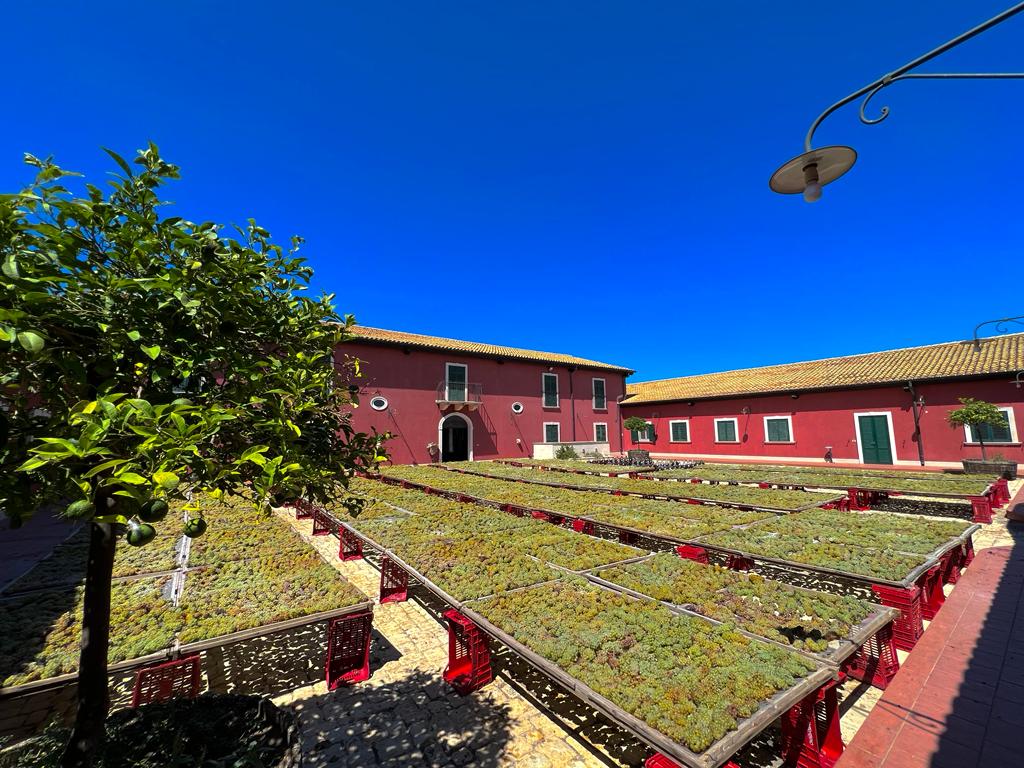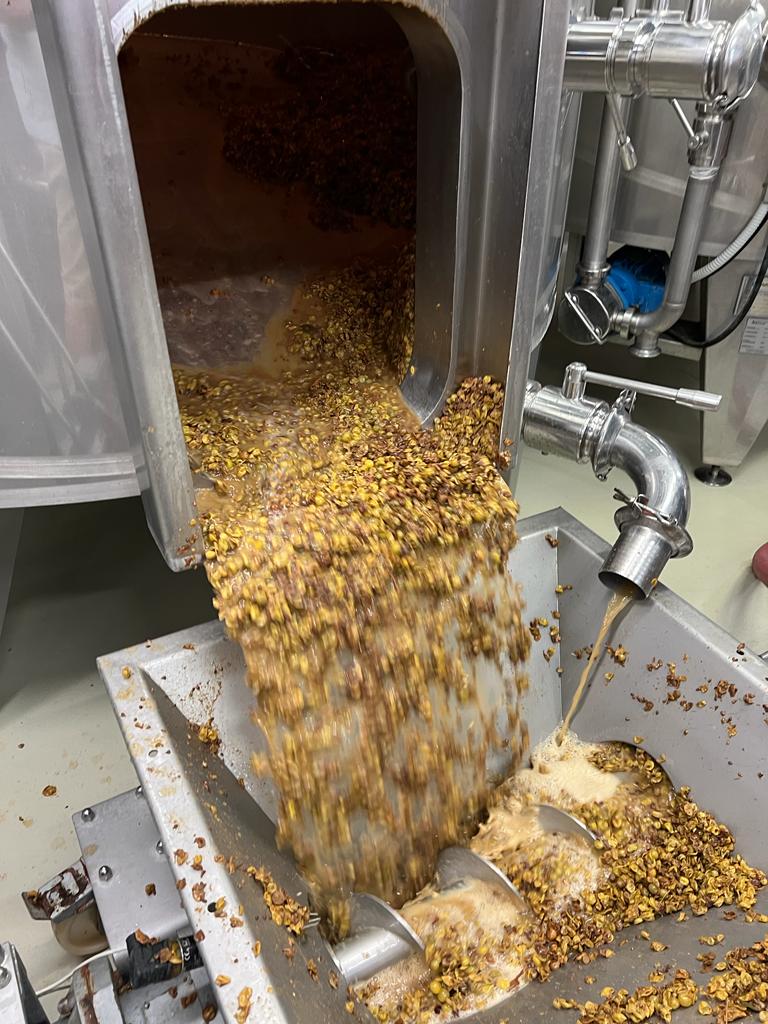A few weeks ago we ran into a rather unpleasant event: a small part of our Moscato Bianco Passito 2022 refermented in the bottle after being marketed, when it was already on the shelves of wine shops and in the wine lists of restaurants. We had no choice, at least in the way I like to think of my work: we immediately withdrew all the bottles from the market and stopped selling them.
Our Passito is a very fragile sweet wine, it is in fact a wine that has a low alcohol content on the one hand and a restrained residual sugar on the other. Considering that we always use a minimum quantity of sulfur dioxide (in Passito 2022 just 39 mg/l compared to a limit of 200 mg/l for organic sweet wines) any refermentations are technically possible, even if not desirable. It is in fact the first time that such a situation has occurred to us, after decades of experience.
There are two ways that are normally followed to prevent a second fermentation in the bottle from starting. The first foresees a massive use of sulfur dioxide. We prefer to avoid, an excess of this product not only alters the aromas of the wine but also causes other disturbances to the human body. The second provides that the wine is filtered “tight”, to avoid having residues of yeast or bacteria that could trigger an unwelcome fermentation in the bottle. Here in Marabino we opt for the latter, but without exaggerating. Something probably went wrong during the bottling phase, I imagine one or more taps of the bottling line had a minimal presence of yeasts which then ended up in the bottle. Or rather, in some bottles.
In the last few days we have opened many bottles, just to verify the extent of the problem. Luckily only a small part is slightly sparkling but, as you can imagine, we still can’t risk it. Impossible to think of selling it like nothing happened.

Producing wine following an ethic that renounces the use of synthetic chemistry in the vineyard and in the cellar and that respects the environment, the wine and the consumer, must never be the result of a commercial choice, but must be born from a personal feeling, from the thought of those who produce wine and live it every day.
Most of the people who consume wine do not focus on the production ethics of that product but – for most of the cases – only on its aesthetics. If it has defects, what characteristics distinguish it and what perceptions of aromas and flavors it releases.
For me, wine, more than any other consumer product, needs to maintain a strict balance between ethics and aesthetics, because if this were not the case, it would lose the weight of the cultural product it is. If the balance between these two aspects were lost, we could only understand it as a (ordinary) drink, which fortunately it is not.
At Marabino we have chosen to cultivate our land without the use of chemicals, following the principles of biodynamic agriculture, taking care of the environment around our vineyards and olive groves with medicinal and aromatic herbs, hedges and fruit trees in order to create as much a complex environment, full of plants, trees, insects and animals. In the cellar we have decided to give up the hundreds of oenological products allowed for the production of organic wine, we only use grapes and very low dosages of sulfur dioxide, without altering the must or the wines we produce, to have the purest expression of our territory and of the vintage that distinguishes it.
We will never give up on these choices. Following our ethics exposes us to great risks, which could be avoided with many shortcuts but which, in fact, do not belong to us. At the same time we are strict, and we try to combine ethics with products that are aesthetically never approximate, faithful to our idea of quality.

Having withdrawn the product, if we do not consider the economic damage, I believe we have contained the damage to the brand’s image. An experience that made me reflect and that led me to make a decision: the next Passito, that of 2023, will not even be filtered. To stabilize it I will go back to doing what has always been done in the area, in Val di Noto: I will fortify it with a small addition of Moscato brandy. All the Passito 2022 that I now have in the cellar, even the one that I have withdrawn from the market, will be uncorked and then distilled to obtain a brandy from our own passito. So every year, after each harvest we will allocate part of the wine from Moscato grapes to the distillery, to fortify the passito of the following harvest.
With fortification, the wine will not need any addition of sulfur dioxide or filtration because despite the presence of sugar, a greater quantity of alcohol inhibits any action of the yeasts.
This unfortunate episode has opened our eyes and outlined a new way forward, where tradition, ethics and aesthetics go hand in hand as we like, maintaining our non-interventionist idea of wine, healthy and genuine fruit of our land.
Enjoy the taste,
Pierpaolo Messina
